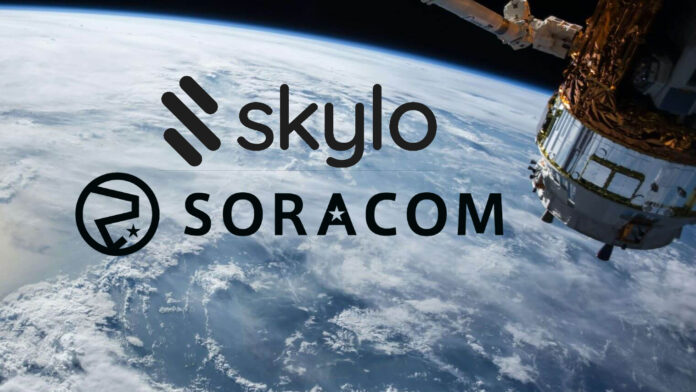KDDI-owned global virtual IoT network operator (MVNO) Soracom has announced a partnership with US-based cellular-IoT satellite operator Skylo Technologies. The deal sees Soracom further integrate non-terrestrial network (NTN) connectivity as an option in its cloud-managed portfolio of wireless IoT standards, which also includes (terrestrial) cellular IoT (NB-IoT and LTE-M) and Sigfox, plus Wi-Fi and Ethernet. The Skylo offer lets terrestrial Release 17-level 3GPP-based NB-IoT hardware (chipsets, modems, modules, devices) connect via satellite.
Soracom, also an investor in Sigfox-parent Unabiz, claimed a deal late last year to offer ‘native support‘ for satellite-based cellular IoT messaging with Switzerland-based Astrocast, enabling enterprises to pay for terrestrial and satellite IoT in a single cloud platform. Its offer of NB-IoT and LTE-M on licensed mobile networks, plus its arrangement with Unabiz to sell Sigfox services in certain markets, comprise its low–power wide-area network (LPWAN) portfolio of IoT connectivity options; its NTN deals with Skylo and Astrocast extend these LPWAN services.
A statement explained the Skylo NTN network, “grounded in 3GPP specifications”, has been developed around a so-called ‘standards-plus’ approach, where the US firm has added “technical specifications to improve the functionality, interoperability, and ubiquity of the satellite-based network over and above the 3GPP standards”. It said: “In combining Soracom protocol conversion and authentication offloading features, the customer can minimize the amount of data transmitted over the satellite link while maintaining integration with a cloud service of their choice.”
The statement declared: “The combination of NTN-based NB-IoT connectivity and cloud-based IoT network management represents the next generation of IoT connectivity: highly available, highly affordable, ubiquitous, and deeply integrated with the hyperscale cloud platforms that serve as the backbone of today’s IoT. Soracom’s fully virtualized global platform provides full MVNO capability paired with powerful connectivity management tools.”
Kenta Yasukawa, co-founder and chief technology officer at Soracom, said: “Soracom is committed to a cloud-native future where anything can connect to the cloud from anywhere, without compromising availability, affordability, or capability. Combining breakthrough NTN NB-IoT network, we can enable customers to add satellite coverage to their existing hardware with minimal data overhead for hyperscaler cloud integrations.”
Andrew Nuttall, co-founder and chief technology officer at Skylo, said: “We are thrilled to announce our partnership with Soracom, as its expertise aligns with our mission to connect the unconnected. Together, we are empowering businesses and industries to unlock the full potential of IoT, regardless of their location or infrastructure constraints, enabling real-time data access, monitoring, and control in areas not currently served by cellular connectivity.”
Last week, Soracom, which might be noted for its energy and innovation in the IoT market, introduced three new analytics services to help IoT users to process and interpret IoT device data on the fly, and connect IoT devices to emerging generative AI engines available via the big hyperscaler cloud platforms. The week prior, it confirmed a deal with Unabiz to enable its global cellular IoT airtime to be resold as part of the Singapore firm’s burgeoning ‘universal LPWAN’ proposition.
In May, Soracom launched a new multi-carrier IoT service in the US to target local firms in the oil and gas, agriculture, and supply chain sectors; the service piggybacks on AT&T, T-Mobile, and Verizon. In April, it announced a deal with IoT platform provider Simetric to offer a “single pane-of-glass” management layer for sundry IoT projects. In late 2022, the firm said it had five million IoT connections globally – an advance of one million in less than a year, based on uptake in the energy, retail, healthcare, agriculture, and consumer electronics industries, it said at the time.

